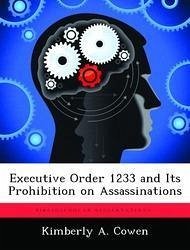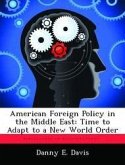Through an executive order, the United States forfeited assassination as an instrument of foreign policy. Many Americans believe that the prohibition limits our flexibility in dealing with national security threats, specifically asymmetric threats from rogue leaders. This thesis is an examination of Executive Order 12333 and its prohibition on assassination. This paper further details both legal and moral arguments, for and against assassination. The legal provisions of Executive Order 12333, the Hague and Geneva Conventions, and United Nations Charter will be reviewed. The moral dilemma of assassination will also be discussed. This thesis will address the question of whether the United States can assassinate an individual who poses a threat to its national security and interests. The author concludes that the United States should reserve the option of assassination of its threats as a tool of foreign policy.
Hinweis: Dieser Artikel kann nur an eine deutsche Lieferadresse ausgeliefert werden.
Hinweis: Dieser Artikel kann nur an eine deutsche Lieferadresse ausgeliefert werden.








